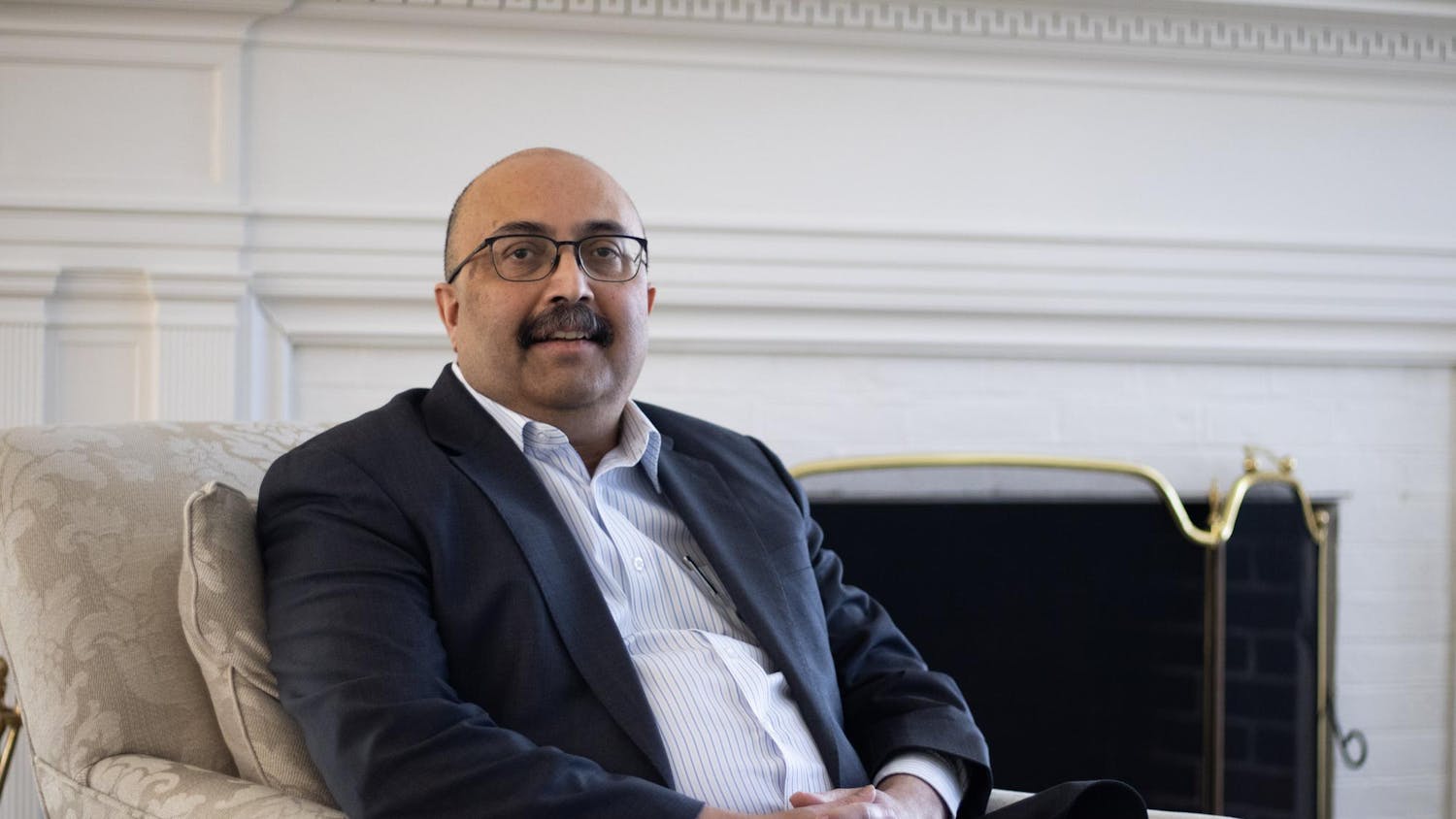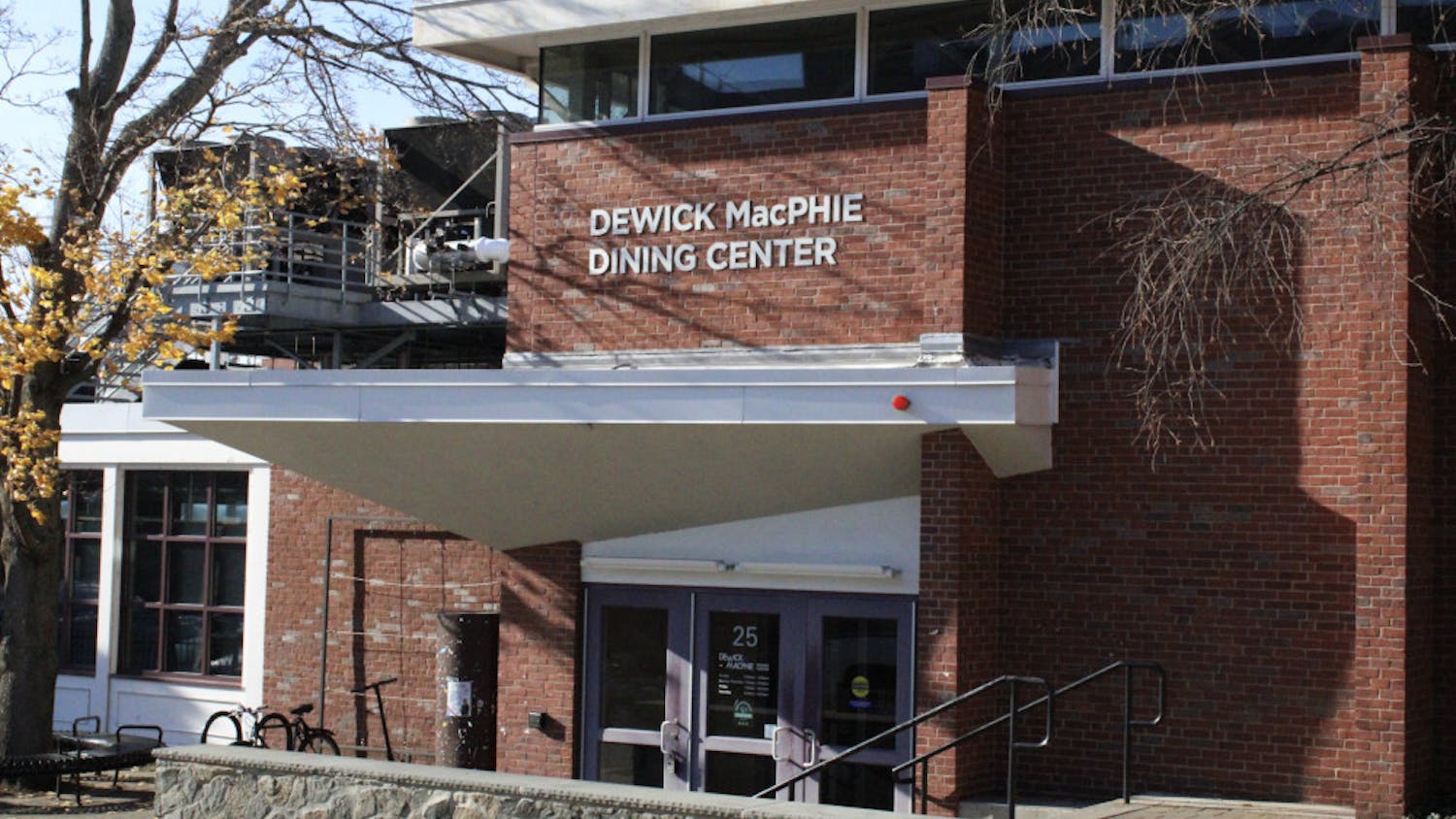The Service Employees International Union (SEIU) has filed a grievance with UGLUnicco, Tufts' campus-cleaning contractor, for neglecting to post job vacancies created during the recent transition from American Building Maintenance (ABM) Industries to UGLUnicco.
The SEIU and UGLUnicco met on Oct. 25 to discuss the grievance, according to an email from Executive Vice President Patricia Campbell. The email was sent to individuals who signed a petition submitted to University President Anthony Monaco addressing the issue.
The two parties could not accurately determine how many employees worked for ABM before the switch and therefore have not reached an agreement about the exact number of vacancies, Campbell said. She added that the administration has asked for evidence from both parties about the number of temporary workers rehired, a matter that was also of dispute between the two.
UGL Unicco was required to first offer jobs back to all of the eligible janitors working under ABM before the switch and to then offer the remaining jobs to part-time janitors who want to assume full-time positions, according to Matt Gulish, deputy director of Higher Education for SEIU.
"There are, by our count, roughly 60 positions that have been left vacant," Gulish said. "Our contract says [UGLUnicco] needs to post any vacant full-time positions for existing employees to apply for."
UGLUnicco could not be reached for comment.
Jumbo Janitor Alliance (JJA) co-Chair Liam Walsh-Mellett explained that the approximately 60 vacancies were created by the departure of 50 full-time and 12 part-time janitors, some of whom were not rehired after the contract switch because of documentation issues.
However, UGLUnicco has not offered the vacant positions to part-time janitorial workers currently employed by UGLUnicco, he said.
"If a lot of people are part-time workers and want to move to full-time, they are supposed to be allowed to do that, and UGLUnicco is not complying," Walsh-Mellett, a sophomore, said. "Janitors who are below 29 hours a week don't get benefits and don't get healthcare, and that's a huge thing in Massachusetts because it's required."
UGLUnicco's contract with SEIU currently requires that 75 percent of its janitors be full-time employees, with that percentage increasing to 90 percent by Jan. 1, 2013, according to Walsh-Mellett. He said that the percentage of full-time janitors is presently 60 percent.
Walsh-Mellett indicated that a verbal agreement was made by UGL Unicco at the meeting to post the vacant positions.
"Overall, it was a pretty positive meeting," Gulish said. "They at least indicated some willingness to post these positions once we can verify the exact number of positions that need to be posted."
Campbell's email promised that the Tufts administration will continue to monitor the situation and will require UGL Unicco to uphold the requirement of offering jobs to all previously employed, eligible workers.
"We expect that any UGL Unicco employee who works at Tufts will be treated in a fair and respectful manner in accordance with the terms of the union contract," Campbell said.
Walsh-Mellett explained that the understaffing caused by the vacancies has led to an increased workload for the janitorial staff and that pressure is being put on workers to do more work.
"We don't have a full picture, but we've heard some cases of people being pushed to do an amount of work that's just not reasonable for the time that they have," Gulish said.
A janitor who preferred to remain anonymous believes that there was a lack of understanding among the staff when the new contractor explained the changes in workload.
"Some people don't understand what they said," the janitor said.
According to the worker, the janitors were advised by SEIU not to refuse work, but instead to attempt to cover the extra work assigned to them.
But he explained that UGL Unicco has helped at least one worker cover her work by placing another janitor in the building to help her with her duties and decrease her added responsibilities. He also noted that not all janitors have increased workloads.





